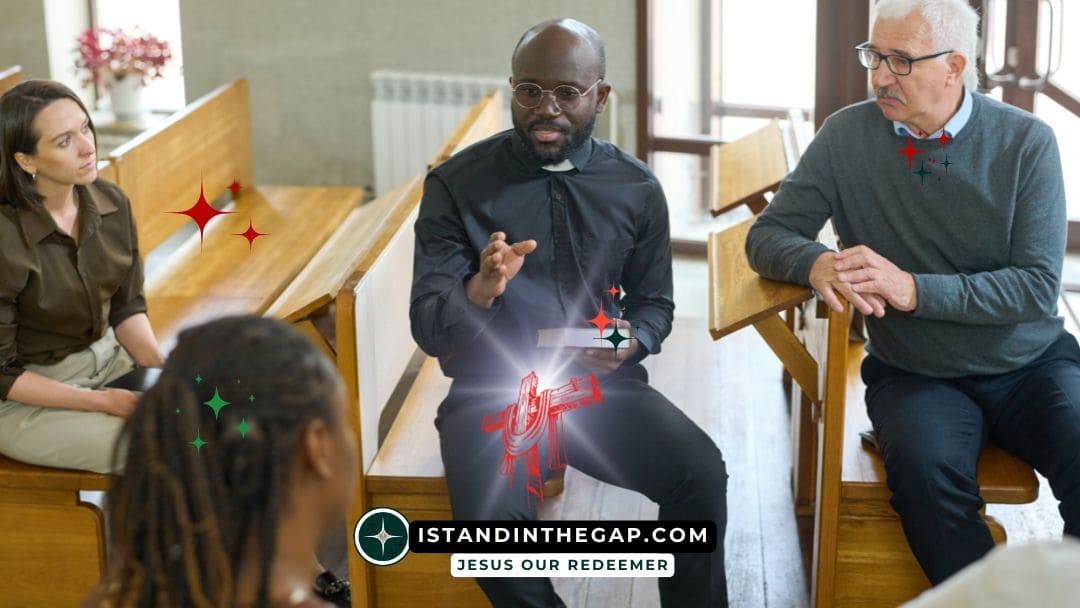The Global South Evangelical Movement is rapidly reshaping Christianity worldwide as researchers challenge long-held assumptions about evangelical identity.
New findings suggest that traditional Western definitions of evangelicalism no longer capture the complex reality of this faith tradition, which has experienced unprecedented growth across Africa, Asia, and Latin America.
For decades, American and European scholars defined evangelicalism through Western theological frameworks, but this narrow lens fails to account for the diverse expressions of evangelical faith flourishing in the developing world.
As millions of believers in the Global South embrace evangelical Christianity, their unique cultural perspectives and spiritual practices are fundamentally transforming what it means to be evangelical in the 21st century.
This shift represents a demographic change and also signals a complete reimagining of evangelical Christianity’s future direction and global influence.
Global South Evangelical Movement: Key Takeaway
Evangelical Christianity’s center has shifted from the West to the Global South, challenging traditional definitions of the movement.
Researchers Challenge Traditional Evangelical Definitions
Leading scholars are questioning whether “evangelical” as a singular movement actually exists anymore.
Recent research indicates that the movement has become so diverse and geographically dispersed that conventional Western categories no longer apply.
Dr. Mark Noll, a prominent evangelical historian at the University of Notre Dame, explains that the Global South Evangelical Movement operates with different theological priorities than its Western counterparts.
While American evangelicals often focus on individual salvation and biblical inerrancy, believers in Africa, Asia, and Latin America emphasize community healing, social justice, and spiritual warfare against poverty and oppression.
This theological diversity reflects the dramatic demographic shifts within global Christianity. According to the Pew Research Center, the majority of the world’s evangelical Christians now live outside North America and Europe.
Cultural Context Shapes Religious Expression
The Global South Evangelical Movement incorporates indigenous cultural elements that would seem foreign to Western evangelicals.
In many African churches, traditional music, dance, and storytelling methods enhance worship experiences.
Latin American evangelicals often blend Pentecostal practices with local customs, creating vibrant faith communities that address specific regional challenges.
These cultural adaptations don’t represent theological compromise but rather demonstrate how evangelical principles take root in different contexts.
As missionaries have long recognized, effective ministry requires understanding local cultures and customs.
Demographic Data Reveals Massive Shifts
Statistics paint a clear picture of evangelical Christianity’s changing geography. While church attendance declines in many Western nations, evangelical communities in the Global South experience explosive growth.
Nigeria alone has more than 60 million evangelical believers, surpassing the evangelical population of the entire United States.
The Philippines, South Korea, Brazil, and Kenya have all seen remarkable evangelical growth over the past three decades.
These nations now send missionaries to Europe and North America, reversing historical patterns of Christian expansion.
Leadership and Influence Patterns
The Global South Evangelical Movement has produced influential leaders who shape global Christian discourse. Pastors like David Yonggi Cho in South Korea and Enoch Adeboye in Nigeria lead congregations larger than most Western denominations.
Their theological insights and ministry approaches increasingly influence evangelical thought worldwide.
Understanding these leadership dynamics is crucial for anyone interested in contemporary Christian movements and their global impact.
Theological Innovations and Practices
The Global South Evangelical Movement emphasizes aspects of Christianity that receive less attention in Western contexts.
Prosperity theology, though controversial, addresses real concerns about poverty and economic development in struggling nations. Healing ministries respond to limited healthcare access in many regions.
These theological emphases don’t necessarily contradict core evangelical beliefs about salvation by grace through faith.
Instead, they highlight different aspects of Christian teaching that resonate with specific cultural and economic circumstances.
Social Justice Integration
Unlike some Western evangelical traditions that separate spiritual and social concerns, the Global South Evangelical Movement often integrates both seamlessly.
Churches in these regions frequently operate schools, hospitals, and economic development programs alongside traditional evangelistic activities.
This holistic approach reflects biblical teachings about caring for the whole person—body, soul, and spirit. Many Global South evangelicals view social action as inseparable from gospel proclamation.
Implications
Positive Impacts
The Global South Evangelical Movement brings several significant benefits to worldwide Christianity.
- It provides fresh theological perspectives that challenge Western assumptions and enrich global Christian understanding.
- The movement’s emphasis on social justice and community development addresses real-world problems in practical ways.
- The demographic shift ensures Christianity’s continued vitality and growth despite declining religious participation in Western nations.
- Increased South-to-North missionary activity brings new evangelistic energy to traditionally Christian regions experiencing spiritual decline.
Potential Challenges
However, this transformation also presents difficulties. Theological diversity can lead to fragmentation and conflict over essential Christian doctrines.
Some Global South practices may prioritize cultural relevance over biblical fidelity, creating tension with traditional evangelical beliefs.
Additionally, rapid church growth sometimes outpaces leadership development, resulting in insufficient pastoral training and oversight.
The prosperity gospel, while addressing legitimate concerns about poverty, can distort Christian teachings about suffering and sacrifice.
Finally, Western evangelical institutions may struggle to adapt to their diminished influence and learn from Global South perspectives they previously overlooked or dismissed.
Conclusion
The Global South Evangelical Movement represents Christianity’s future, not just its present reality. As billions of believers in Africa, Asia, and Latin America continue shaping evangelical identity, Western Christians must humble themselves to learn from their brothers and sisters worldwide.
This demographic transformation offers exciting opportunities for renewed missionary zeal, theological innovation, and holistic ministry approaches.
Rather than mourning the decline of Western evangelical influence, Christians everywhere should celebrate how God works through diverse cultures and contexts to advance His kingdom.
The Global South Evangelical Movement reminds us that Christianity has always been a global faith, and its center has simply returned home to the regions where it experienced its earliest and most dramatic growth.
Frequently Asked Questions
What defines the Global South Evangelical Movement?
- The Global South Evangelical Movement refers to evangelical Christian communities in Africa, Asia, and Latin America that emphasize cultural relevance, social justice, and holistic ministry approaches while maintaining core evangelical beliefs about salvation.
How large is the evangelical population in the Global South?
- The majority of the world’s evangelical Christians now live in the Global South, with countries like Nigeria, Brazil, Philippines, and South Korea hosting tens of millions of evangelical believers each.
What are the main theological differences between Global South and Western evangelicals?
- While sharing core beliefs about salvation by grace through faith, Global South evangelicals often emphasize community healing, social justice, prosperity theology, and spiritual warfare more than their Western counterparts.
Are Global South evangelicals sending missionaries to the West?
- Yes, many Global South evangelical churches now send missionaries to Europe and North America, reversing historical patterns where Western nations sent missionaries to developing countries.
How does culture influence Global South evangelical practices?
- Global South evangelical churches often incorporate indigenous music, dance, storytelling, and customs into their worship and ministry, creating culturally relevant expressions of Christian faith that address local challenges and contexts.

















